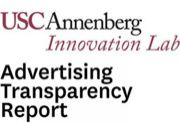Google, Yahoo Caught Quietly Funding Internet Piracy Sites: USC Report

Two of the Internet’s biggest players have been accused in a new report of indirectly financing websites that facilitate Internet piracy. Google and Yahoo, two influential companies who in the past have been outspoken about their opposition to copyright infringement, were named among the top ten backers of torrent sites like FilesTube and SUMOTorrent. It’s unclear, though, just how willing of a participants Google and Yahoo were.
Websites that provide illegal downloads use to their advantage the demand for free music and movies by commanding web traffic which, in turn, attracts advertising dollars. The business model that has quietly benefitted the torrent sites and the advertisers is now coming under scrutiny, though, because of a new report from the Annenberg Innovation Lab claiming the biggest supporters of piracy sites are the very companies who have been tasked with stopping them.
The Annenberg report, published as part of the University of Southern California’s effort to keep Internet practices transparent, shed a light on the top ten ad networks placing the most advertisements on pirate sites. Most of the companies are probably forgettable to the everyday Internet user but two are raising some eyebrows: Google (ranked at No. 2) and Yahoo (ranked at No. 6).
Much of Google’s $100 million daily ad revenue comes from the company’s “display network” of advertising. There are over 2 million companies and individuals that have partnered with Google and share the revenue from hosting the ads with the search giant.
Vulture reported that its easy for any business to join in this partnership, they only have to agree to a basic terms of service agreement, which prohibits copyright infringement. If a video or song is illegally hosted on a website it’s usually up to the person who owns the copyright to contact that site. When the MPAA and RIAA try to stop pirate sites one of their favorite methods is to target the advertisers of that site, thus crippling much of the revenue that goes into it.
With all the attention paid to stopping piracy over the past year it shouldn’t be a shock that both Google and Yahoo contacted Vulture to deny the claims and question the authenticity of the Annenberg findings.
“We have not seen a copy of this report and don’t know the methodology but to the extent it suggests that Google ads are a major source of funds for major pirate sites, we believe it is mistaken,” an email read. “Over the past several years, we’ve taken a leadership role in this fight, partnering with industry organizations to cut off the flow of money to piracy sites, as well as investing significant time and money to keep copyright-infringing content out of our network. The complexity of online advertising has led some to conclude, incorrectly, that the mere presence of any Google code on a site means financial support from Google.”
Lab Director Jonathan Taplin, a longtime friend of singer Levon Helm, whose career was hurt by fans illegally downloading his music, wasn’t buying that reasoning, though, and told the Los Angeles Times the intention of the report was to see how so many sites were able to host media content illegally.
"Whenever we talk to a brand about the fact that their ads are all over the pirate sites, they're like, 'Oh, how did that happen?’" Taplin said. "We thought it would be easier if they knew what ad networks were putting ads on pirate sites — so they could avoid them.
“A brand like Ford or Nationwide Insurance doesn’t want its ad on a porn site,” he continued. “The ad networks can guarantee that it isn’t. If they can guarantee that, why can’t they guarantee the same things on pirate websites?”
© Copyright IBTimes 2024. All rights reserved.





















